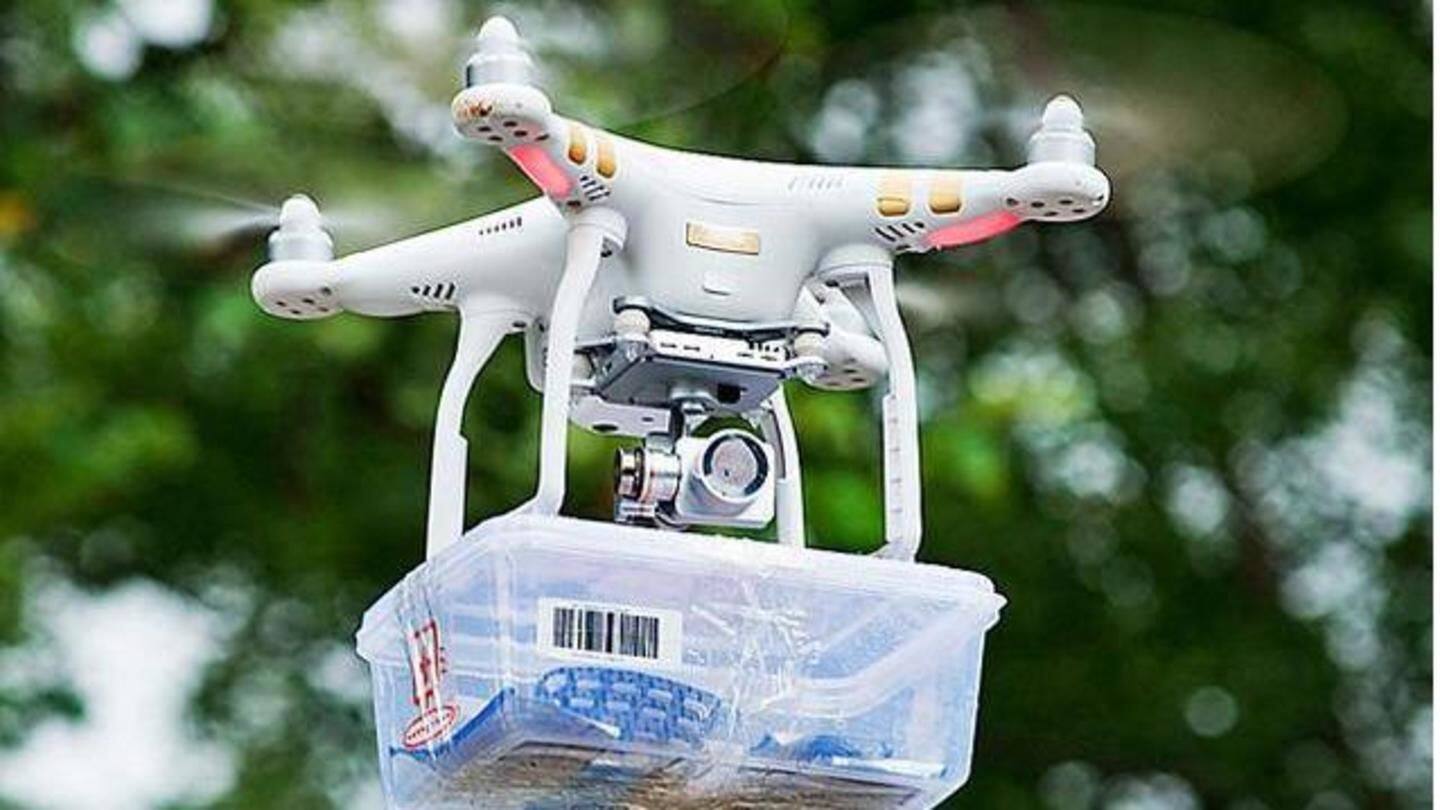
IIPH-H working on a drone system for delivering medical products
What's the story
Researchers at the Indian Institute of Public Health, Hyderabad (IIPH-H) are working on a drone delivery system for medical products, which is expected to be time and cost effective. The Digital Drone-based Real-Time Advanced Medical Modular logistics system (2 DREAM) model envisages delivering medical products on a drone, Assistant Professor and Program Coordinator, Health Informatics, IIPH, Suresh Munuswamy said. Here's more.
Working
Medical products include blood samples, medicines
The medical products include blood samples, vaccines, medicines, Munuswamy said. He said the institute is working on developing the design of the drone, the specifications, including the distance the drone is supposed to travel, and the approximate size of the payload i.e. carrying capacity of the drone. "We are also looking for partners who actually have these technologies and bring them together," he said.
Information
Carrier box will have temperature and product monitored throughout
The specifications are needed as there are drones which travel varied distances, Munuswamy said. The medical products are proposed to be carried in a modular purpose-built digital carrier box where temperature and the payload carried is maintained, monitored, and recorded continuously.
Cost effective
System demerits include limited payload
The institute, which comes under the aegis of Public Health Foundation of India (PHFI), has partnered with the US-based Johns Hopkins University to develop temperature-controlled carrier box. The drone-based medical logistics would be time and cost effective compared to traveling by road though it has weaknesses like limited payload. It is time effective as drones can reach the destination fast, Munuswamy said.
Valuable idea
Munuswamy hopes the drone will fly within next three years
"We are not hoping drones are going to fly (in) may be six months or perhaps even a year. But, this has to be considered as a long-term approach," Munuswamy said. "Maybe in the next two years or even three years, if you are even thinking of providing universal coverage (for healthcare), you need to start the work now," he said.